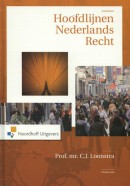Product informatie
- ISBN 9789058504722
- ISBN 10 9058504727
- Druk 1
- Bindwijze Paperback
- Taal Engels
- Uitgever Wolf Productions
- Onderwerp Recht algemeen
- Beschikbaar sinds 9 Juli 2011
Samenvatting
At the multilateral, regional and local level we can identify, in relation to intellectual property rights (IPRs), a trend toward: broadening of the scope of substantive rules; extending of the term duration and removing the limitations and expectations to rules. As a result, the remaining flexibilities left to the individual countries in how they follow and develop their own IPR strategies, in line with their socio-economic developments needs, diminish, and the public domain shrinks. Do these pursued negotiation strategies do justice to creating a good equilibrium between incentives for creativity and innovation and public policy interests? This book aims to identity available flexibilities in the TRIPS Agreement which could be of use to developing country members and provide recommendations ... for the pursuit of policies tailor-made to development needs. The introduction of IPRs within the framework of the WTO has aroused much controversy, especially amongst developing country members which is the focus of this research. One of the main reasons for this controversy is the lack of cumulative empirical evidence that IPR protection is essential for innovation and economic growth. This book analyses the suitability of traditional knowledge concepts and geographical indications to further the interests of developing countries. In addition, it scrutinises the role IPR protection plays in facilitating international technology transfer. Efforts to support the interests of developing countries and to bring back the public interest balance in the international legal framework for intellectual property protection have resulted in Public Health, the UN Declaration of Indigenous Peoples, the TRIPS Amendment in relation to Compulsory Licensing and the large support for a disclosure of origin requirement. However , translating the theory in to practice concrete actions continues to be a challenge.
Meer boeken van uitgever Wolf Productions
Meer boeken met de onderwerpen Recht algemeen
Veel gestelde vragenmeer antwoorden
Hoe werkt Resale.nl?
Je kunt op de website advertentie(s) plaatsen van de boeken die u wilt verkopen. Een potentiële koper neemt dan contact met je op om samen een prijs af te spreken en de transactie verder af te handelen. Houdt hierbij onze aanbevelingen voor een veilige transactie in gedachten en voorkomt dat je slachtoffer wordt van oplichting.
Hoe kom ik in contact met de verkoper?
Je kunt een reactie versturen door bij de betreffende advertentie van de verkoper op de knop ‘doe een bod’ te drukken. Je kunt nu een bod doen op de advertentie en een persoonlijk bericht toevoegen. Het verstuurde bod brengt je in contact met de verkoper via e-mail.
Wat zijn de kosten voor het verkopen van mijn studieboeken?
Je kunt geheel gratis gebruik maken van de diensten van Resale.nl. Resale.nl haalt zijn inkomsten uit advertenties.
Hoe kan ik een boek kopen?
Resale.nl werkt globaal op de volgende manier:
- Zoek via het zoekveld het studieboek dat je wilt kopen.
- Uit de zoekresultaten kies je het studieboek waar je geïnteresseerd in bent.
- Op de detailpagina van het studieboek kun je een overzicht vinden van de personen die het studieboek verkopen.
- Je kunt nu een bod plaatsen door op de button te klikken. Het bod wordt via e-mail aan de verkoper verzonden.
- De verkoper van het studieboek neemt contact met je op door een reactie te geven op het bod dat je hebt verzonden. Met de verkoper kun je gezamenlijk een prijs afspreken. Houdt hierbij onze aanbevelingen voor een veilige overdracht in gedachten en voorkom dat u slachtoffer wordt van oplichting.
Hoe weet ik wat ik koop?
Om te achterhalen of wat je koopt ook daadwerkelijk is wat er wordt geadverteerd is het verstandig om bij de verkoper langs te gaan en het aangebodene te bezichtigen. Doe je dit niet, dan loopt je een zeker risico. Onder het kopje ‘Hoe kan ik de kans op misbruik verkleinen’ kun je meer over dit onderwerp vinden.
Kopers over Resale.nl
bart van gijsel
"Ik ben erg tevreden over deze verkoper de familie thus. Goede snelle levering."
Patrice Michel
"De verkoper heeft er alles aan gedaan om het door mij bestelde product zo snel mogelijk naar mij toe te krijgen. Heeft me van iedere stap op de hoogte ..."
marjolein
"Besteeling snel bezorg, in goede staat net zoals beschrijving en goede communicatie met verkoper!"
marjolein
"Goed contact, snel en in goede orde ontvangen. Staat van het boek was zo goed als nieuw!"
hilda1
"goede medewerking en hulp dank u wel"
Tineke
"Het bestelde werd netjes en snel afgeleverd. De prijs was goed."
stacy
"Goed verpaktBoek ziet er mooi uit"
elisa
"Goede levering alleen jammer dat er niet bij was gezet dat er al in geschreven was"
Elly
"Verkoper reageerde snel op mijn emails en heeft ook het boek snel opgestuurd.Het boek was niet van nieuw te onderscheiden. Was waarschijnlijk niet gebruikt. ..."
Gerard+[2]
"Prettig contact gehad en goed zaken kunnen doen."
















